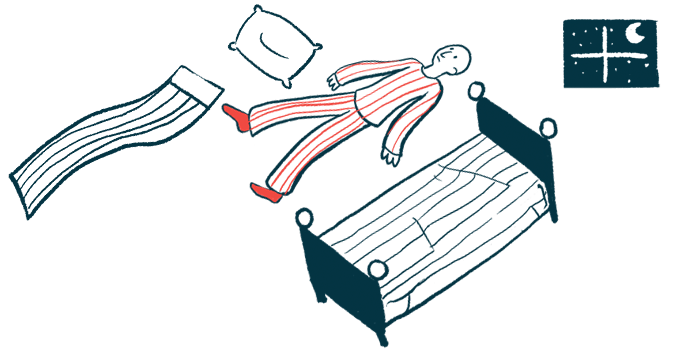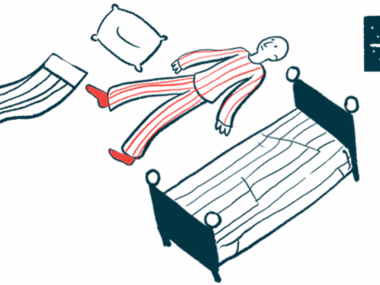Sleep, digestive issues linked to Parkinson’s psychosis: Study
Researchers identify clinical, CSF predictors of early-onset psychosis
Written by |

People with Parkinson’s disease who experience digestive issues or probable rapid eye movement (REM) sleep behavior disorder may be as much as twice as likely to develop symptoms of psychosis, a study found.
Understanding what predicts early-onset psychosis in Parkinson’s can help doctors identify at-risk patients sooner, enabling them to start more targeted treatment interventions when they can be most effective.
The study, “Predictors for early-onset psychotic symptoms in patients newly diagnosed with Parkinson’s disease without psychosis at baseline: A 5-year cohort study,” appeared in CNS Neuroscience & Therapeutics.
It’s estimated that as many as six out of 10 people with Parkinson’s will experience psychosis during the course of the disease. Psychosis is a spectrum of hallucinations and delusions that can include seeing or hearing things that don’t exist but can feel real to patients.
It’s not clear exactly what triggers psychosis in Parkinson’s. To know more, researchers in China looked at data from the Parkinson’s Progression Markers Initiative to identify factors contributing to the development of psychotic symptoms at an early stage of disease.
Psychotic symptoms, motor symptoms
The study involved 338 patients who’d been newly diagnosed with Parkinson’s. Over a five-year follow-up, 83 developed psychotic symptoms. The proportion of patients with psychosis increased over time from 4.4% after one year to 24.6% after five years.
The patients who developed psychotic symptoms were more likely to fall on stage 2 of the Hoehn and Yahr scale, which indicates motor symptoms in both sides of the body without impairment of balance, than on stage 1, in which motor symptoms affect one side of the body.
They also had higher scores on the MDS Unified Parkinson’s Disease Rating Scale (MDS-UPDRS) part III, a measure of how severe motor symptoms are, compared with patients who didn’t report psychosis. In the MDS-UPDRS, higher scores mean worse symptoms.
At the final visit, patients who developed psychotic symptoms were more likely to have probable REM sleep behavior disorder, in which people act out dreams by shouting, grinding their teeth, and making often-violent movements.
Those patients also experienced worse cognitive impairment and scored higher on the Scale for Outcomes in Parkinson’s Disease for Autonomic Symptoms (SCOPA-AUT), indicating greater dysfunction of the autonomic nervous system that controls automatic bodily functions such as heart rate.
Scoring higher on the gastrointestinal domain of the SCOPA-AUT, indicating worse digestive issues, increased the risk of reporting psychotic symptoms at two or more visits by almost 16%. Having probable REM sleep behavior disorder increased the risk by about 2.5 times.
However, a higher ratio between the levels of beta-amyloid and tau proteins in the cerebrospinal fluid (CSF) — the liquid surrounding the brain and spinal cord — decreased the risk of repeated psychotic episodes by about 16%. Both beta-amyloid and tau can form toxic clumps in the brain of people with Parkinson’s.
When the researchers combined these factors with imaging data, they created a model that was better at predicting psychosis than clinical predictors alone, offering a way to identify patients who are at higher risk of developing psychosis.
“We identified clinical and CSF predictors of early-onset psychosis in patients with [Parkinson’s],” the researchers wrote. “Our study provides evidence and implications for prognostic stratification and therapeutic approaches for [Parkinson’s] psychosis.”



